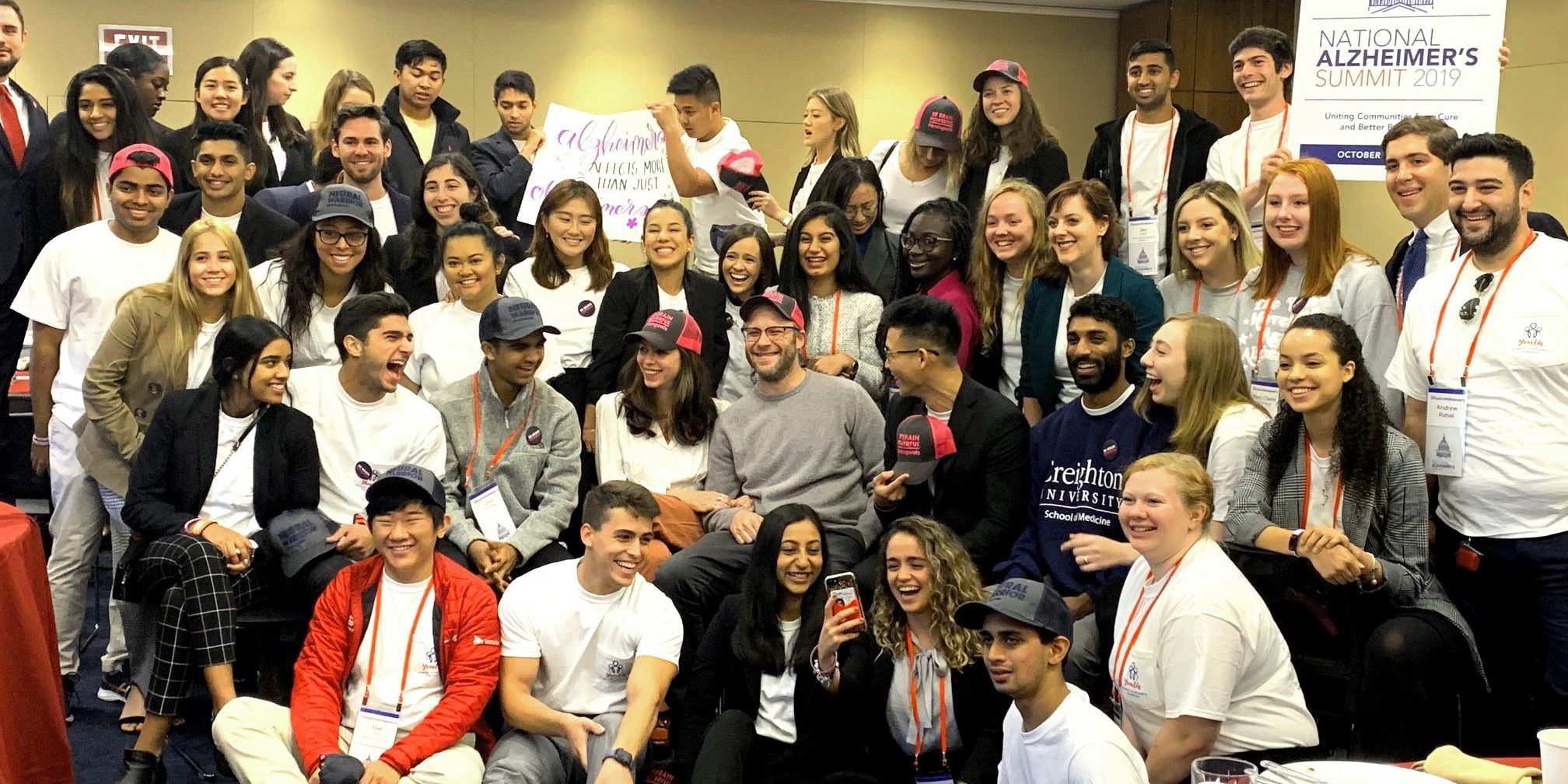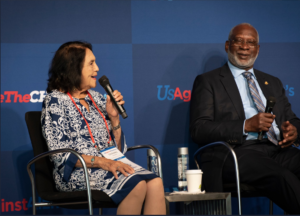Who’s got the power? We’ve got the power. What kind of power? People power!
The final keynote discussion of the UsAgainstAlzheimer’s 2019 National Alzheimer’s Summit—about the intersection of civil rights, racism, and the impact of Alzheimer’s— ended with this chant, led by panelist and civil rights leader Dolores Huerta. The audience answered the chant’s call with energy that spoke to the mobilizing power of the discussion. The last conversation in a Summit that drew on many impressive stories of hope and resilience, the civil rights keynote was perhaps also the most affecting.
This final panel featured two revolutionary civil rights icons: Dr. David Satcher and Dolores Huerta. Dr. Satcher is a former U.S. Surgeon General, the former head of the CDC, a board member at UsAgainstAlzheimer’s, and founding director and senior advisor of the Satcher Health Leadership Institute at Morehouse School of Medicine. Dr. Satcher also has a personal connection to Alzheimer’s, as he cared for his wife who was living with Alzheimer’s over the course of almost twenty years.
In his remarks at the Summit, Dr. Satcher urged the audience to not lose sight of the person behind the disease: “Even though being a caregiver is a struggle, when I look at the whole picture, I consider myself to have been very fortunate.”
Dolores Huerta is a longtime hero on the front lines of grassroots organizing. In fact, at almost ninety, she was recently arrested for protesting with home care workers in Fresno!
“Alzheimer’s affects communities of color in higher proportion,” she said, adding that, “Like every other disease, there will be a day when we find a cure.” Dolores Huerta believes that every opportunity is an organizing opportunity. She emphasized that we need to make a place in the budget for community organizers, in order to improve Latinx and African American efforts against Alzheimer’s, by going out and educating their communities on the disease. “Part of the conversation must be reaching out to communities of color to enable them to help loved ones,” she said.
This discussion delved deep into the unequal racial impact of Alzheimer’s, and the burden caused by the disease—a burden that falls disproportionately on low-income and minority communities.
In order to cure Alzheimer’s, we need to talk about it in a different way than we have in the past, and racial inequality must be a part of the conversation. This is not only in terms of navigating a cure, but in terms of understanding why people of color, especially African Americans, are much more at risk for developing the disease.
A possible—and probable—answer is that the DNA of black and brown people have been traumatized by racism, leading to brain health issues, including Alzheimer’s.
In the words of Dolores Huerta: “Living with oppression makes people depressed, kills their initiative. All institutions have to start doing something about racism.”
For this reason, fighting racism and curing Alzheimer’s have to be everybody’s issue. We only have one human race, and everyone has somebody in their family who has suffered on some level, either from Alzheimer’s, a brain health issue, or another physical illness. We cannot leave anyone behind in our fight for a cure. We’ve got the power.
Learn more about UsAgainstAlzheimer’s here









